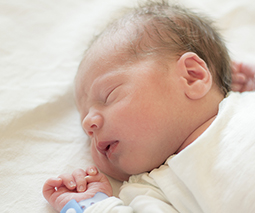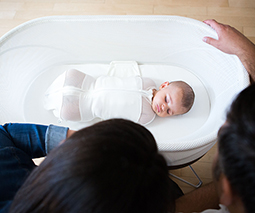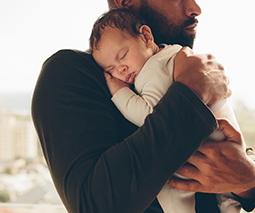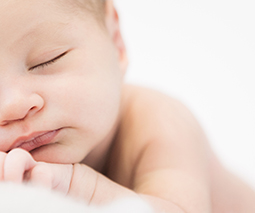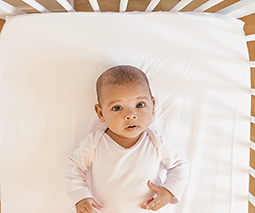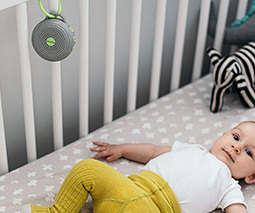How much sleep does my baby really need?
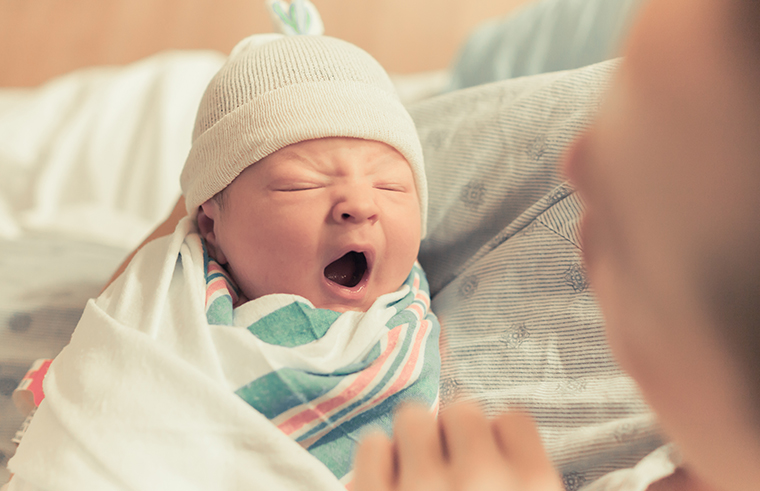
Baby sleep is the most discussed and fretted over topic among new mothers, and for good reason. We all know how important it is, not only to our baby’s growth and development, but also to our household harmony.
Grumpy little ones and under-slept parents are a recipe for misery! So just how much sleep should your baby or toddler be getting?
Here’s a general guide, but remember, every child is different.
Give me sleep
Did you ever think you would be so hung up on sleep before you had kids? There’s a reason sleep deprivation is used as a form of torture – it’s awful, but it’s also a harsh reality of parenthood.
We’ve all paced the floor at 2am with a screaming baby and paid the price of a missed nap or a delayed bedtime. And when our baby doesn’t sleep? We don’t either – humph . But it’s not just us tired parents who need it, our little ones do too and when they don’t get enough, we sure as hell know about it!
Why sleep matters
In baby and toddlerhood your little one is growing and developing at a great speed of knots. Just like every living thing, his brain and body needs sleep in order to function, learn and thrive.
Various studies tell us time and time again that well-slept children are happier, better behaved and find it easier to regulate their emotions. They also have improved attention, learning, memory, quality of life, as well as better mental and physical health. But we don’t need a study to tell us that, do we? Any of us wrangling an overtired toddler in the supermarket knows just how important sleep is.
So how much sleep is needed?
According to the nation’s peak sleep advocacy group, National Sleep Foundation, the daily hours of shut eye your little one needs (including day sleeps) varies among his peers.
While every child is different in terms of the amount of sleep they need, most will require the following to be fully rested:
- Newborns (0-3 months) – 14 to 17 hours
- Infants (4-11 months) – 14 to 17 hours
- Toddlers (1-2 years) – 11 to 14 hours
- Preschoolers (3-5 years) – 10 to 13 hours
And here’s our cute video with more specific ages and stages, including suggested nap times:
But what about sleep fluctuations?
While these guidelines are general in nature, they don’t account for the inevitable sleep fluctuations caused by your baby reaching new milestones, sickness, teething, a sudden drop in the room temperature or night terrors – all of which can result in a wakeful night, or indeed a period of bad sleep. The message is, try not to get too concerned about sleep guidelines if your baby goes through some sleep regression or needs more sleep than is recommended from time to time. Sleep fluctuations are a very normal part of infancy and early childhood and the regression usually occurs because of a milestone approaching.
4 simple ways to help your baby and toddler sleep more
Still, if you know your little one regularly isn’t getting his recommended quota of sleep, you may want to look at tweaking a few things. Try these four ideas:
- Stick to regular sleep times – Babies and toddlers thrive on consistency, so keeping nap and bed times the same will help him to fall into a pattern.
- Dim the lights – Babies need to learn the difference between night and day. You can help your little one do this by feeding and attending to him in low light at night. Also avoid rushing to the cot at the first sign of stirring. Your baby may resettle on his own if given the opportunity.
- Establish a bedtime routine – This will help your baby learn when it’s time for sleep and may include a warm bath, a story and a kiss goodnight.
- Put baby to bed awake – This works best when your child is sleepy and relaxed. Learning to fall asleep on his own is a skill but will mean he’s less likely to need your help to fall back to sleep when he wakes during the night.
Also, beware of over-tiredness. Babies and little kids love to trick us into thinking they aren’t tired when it’s their bed or nap time. But here’s the thing, they probably are! If he’s getting hyperactive, he may have slipped into the overtired zone and will be harder to put down. Sticking to regular sleep times will help to avoid this.
When help is needed
Of course, there are some instances when nothing helps and no advice seems to work. If you suspect your little one isn’t getting enough sleep and may also be suffering from sleep deprivation, then it may be time to seek some professional help.
Don’t suffer in silence, chat to your GP or child’s paediatrician. They may refer you on to a baby sleep school, or even diagnose an underlying condition.
 Need some more baby sleep advice? Our Parent School sleep experts can help. Click to find out more or book a one-on-one session.
Need some more baby sleep advice? Our Parent School sleep experts can help. Click to find out more or book a one-on-one session.

